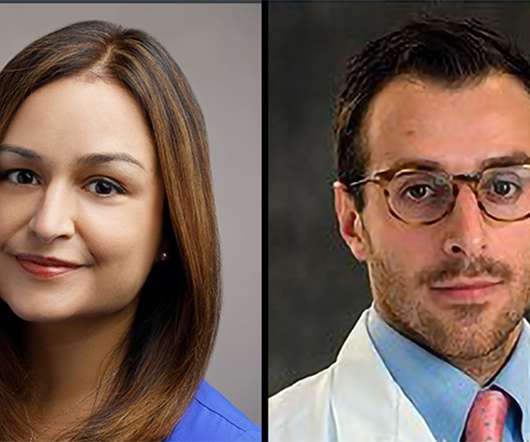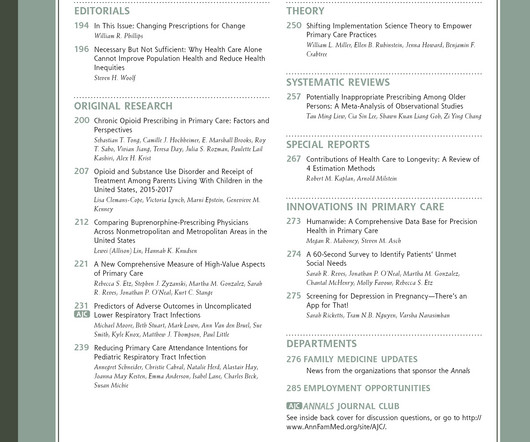Does transitional care management improve outcomes after discharge from the hospital?
Common Sense Family Doctor
FEBRUARY 1, 2025
Since the turn of the century, the rise of hospitalists and the corresponding decline in the number of office-based family physicians who provide inpatient care for their own patients has magnified the value of optimizing the handoff from hospital-based teams to primary care physicians.












Let's personalize your content